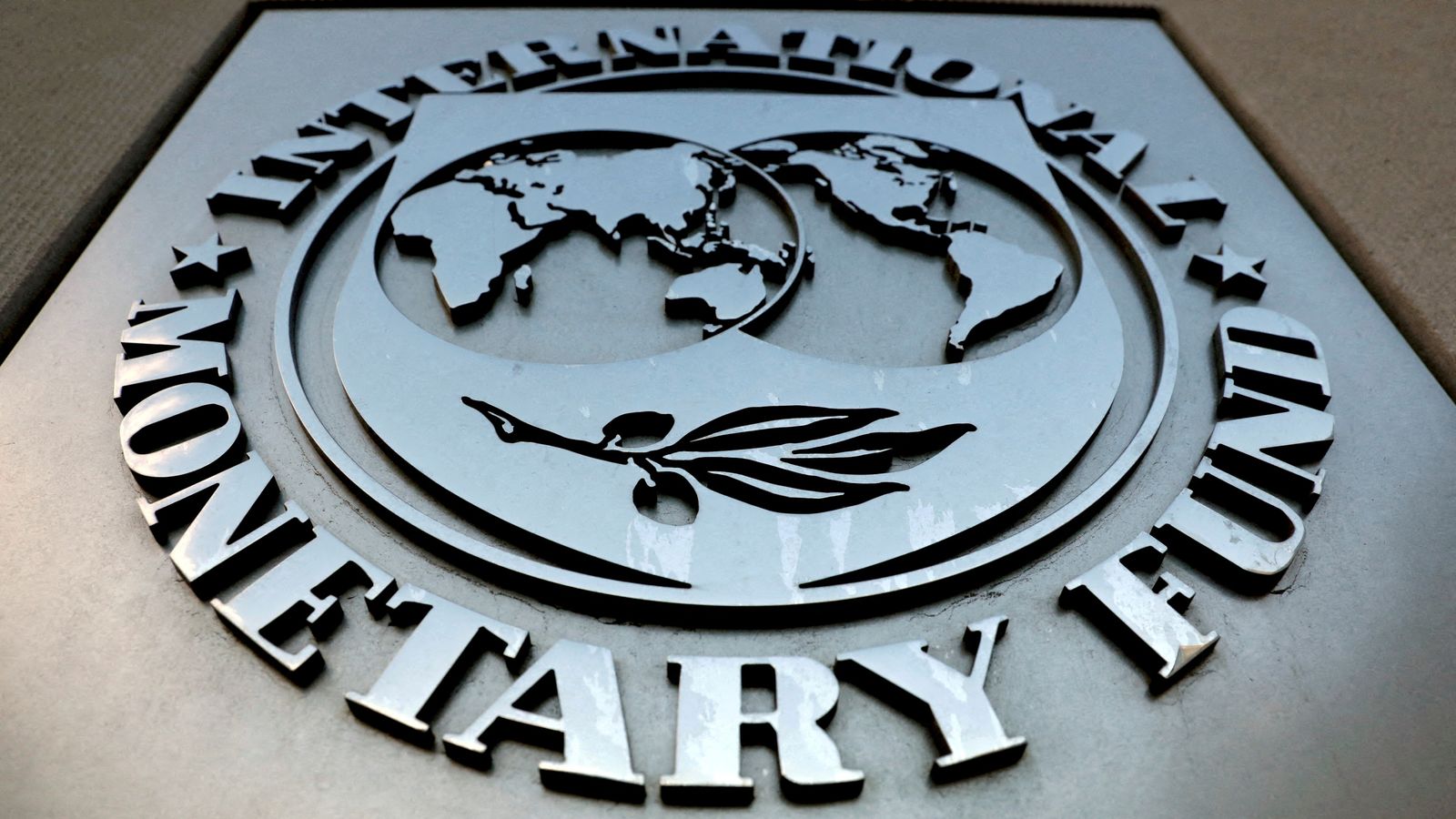Price rises in the UK are to be the highest among the G7 club of industrialised nations, according to the International Monetary Fund (IMF).
Inflation will be the highest among the club both this year and next, the world’s lender of last resort has said in its World Economic Outlook.
It is an unexpected increase from the IMF’s July forecast.
Money blog: State pension to rise more than expected
There was mixed news elsewhere in the outlook, as the UK’s economic growth forecast, as measured by GDP, was revised up for this year but revised down for next.
Latest data showed inflation stood at 3.8% and is forecast by the Bank of England to reach 4% by the end of the year.
The IMF, however, said it expected inflation to average at 3.4% in 2025, up from its previously predicted 3.2%.
That is forecast to slow to 2.5% this year, higher than the 2.3% anticipated just three months ago.
Food and services inflation had been particularly high in recent months due to rising wage bills and poor harvests.
Read more:
Got AirPods? There’s more to them than meets the eye
Homes now need repairs after work done under govt scheme
Economic growth will be a higher 1.3% this year, up from the 1.2% forecast in July, thanks to a strong first few months of the year.
Next year, however, GDP will be 1.4% rather than 1.3% as economies across the world feel trade pressures.
Political reaction
Chancellor Rachel Reeves said: “This is the second consecutive upgrade to this year’s growth forecast from the IMF.
“But know this is just the start. For too many people, our economy feels stuck. Working people feel it every day, experts talk about it, and I am going to deal with it.”
Shadow chancellor Sir Mel Stride said the IMF assessment made for “grim reading”.
“Since taking office, Labour have allowed the cost of living to rise, debt to balloon, and business confidence to collapse to record lows,” he said.
“Working people are feeling the impact every time they shop, fill up the car, or pay their mortgage.”









